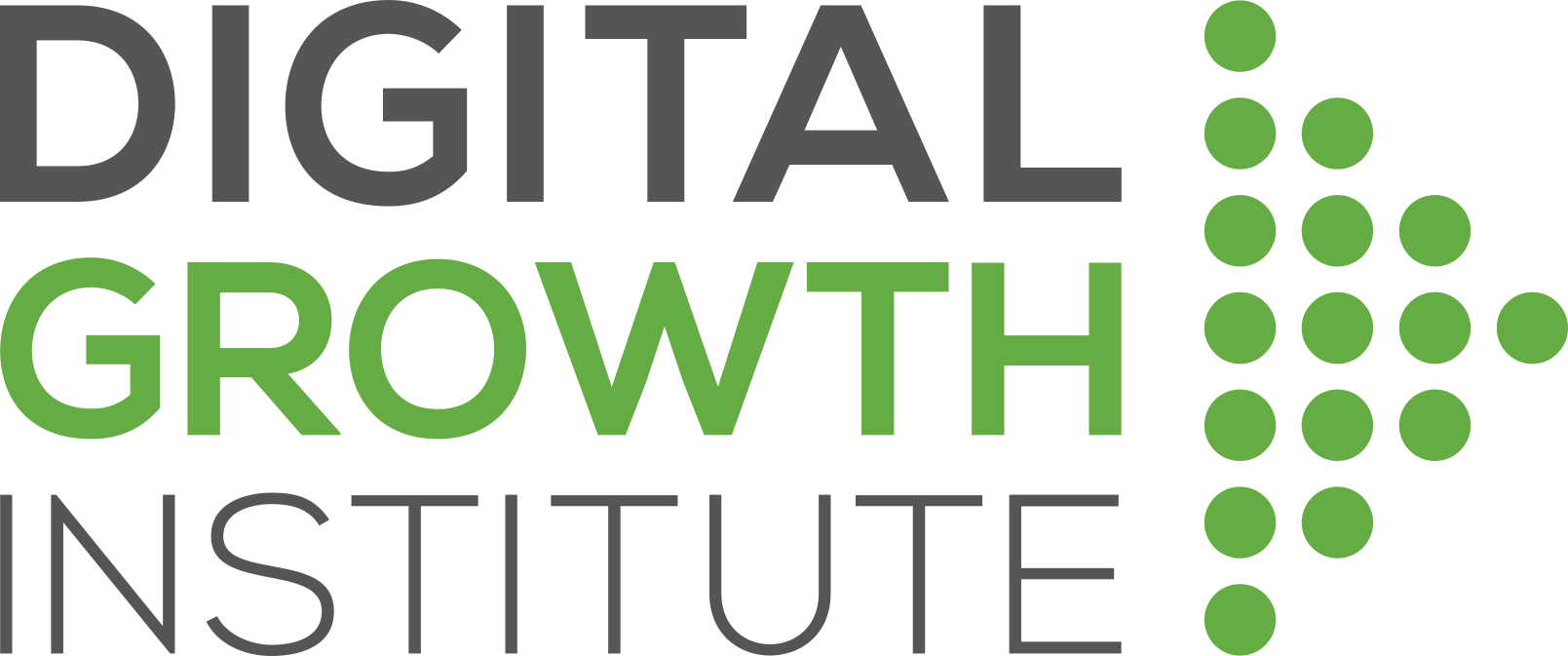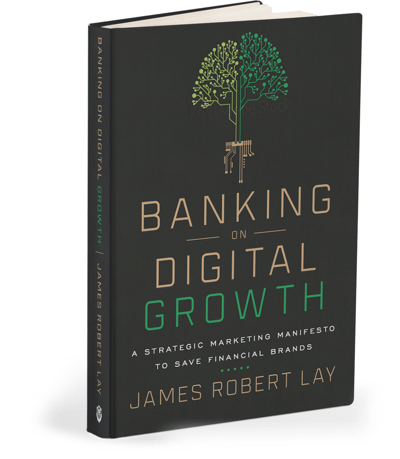“What a really good coach does is create a space for the player - the leader - to understand all the dynamics and make the right decision.” -Nick Kennedy
In tough economic times, training is an easy cut from the company budget. But this is a big blunder in the ever-changing financial world, where leadership and coaching can make the difference between success and failure.
Here to provide insight into this topic is Nick Kennedy, the founder of Nick Kennedy Coaching and the author of The Good Entrepreneur: An Insider’s Guide to Building a Principled Business and a Powerful Personal Legacy. In his work as a leadership coach, Nick helps companies survive and thrive during challenging times.
Not an Entrepreneur? Are You Sure?
If you work for a bank or credit union, you might not think of yourself as an entrepreneur. The term usually applies to individuals and small teams launching new businesses from scratch.
Lots of us are entrepreneurs without realizing it, though. Nick Kennedy points out that the word “entrepreneur” comes from the French term, “bearer of risk.”
Nick believes we’ve created a too-narrow definition of what it means to be an entrepreneur. Every time you take a risk and open yourself up to something new, you’re being entrepreneurial. Whenever risk is involved with a decision, it involves some level of entrepreneurial thinking.
Entrepreneurs aren’t just sitting at the helms of tech firms. They’re everywhere in our world, habitually thinking of fresh ideas that make people's lives better. They’re working in restaurants, dry cleaners, barbershops, healthcare centers, schools, and - yes - even banks.
So why are financial brands so skittish about entrepreneurial thinking?
In more than 20 years of trend-watching in the financial world, James Robert has noticed that financial brands are perhaps the most risk-averse companies in the world. Being risk-averse is so commonplace in banking, it’s a point of pride.
But it’s also an inhibitor to transformation.
Will risk-averse financial brands still exist 10 or 20 years into the future?
Or will they be eclipsed by upstart fintechs that are much more entrepreneurial?
Nick and James Robert have peered into their crystal balls and the future seems to favor the entrepreneurial spirit.
How Do You Want To G.R.O.?
Nick helps people rediscover their inner entrepreneurs by asking, “What’s your end goal? Where do you want to be in 10 years?” When people can picture their successful future selves, they feel more able to develop an entrepreneurial mindset.
Addressing risk aversion is also an essential part of the process. We can’t ignore our natural fear of risk because it’s built into the core of human existence. We’re hardwired to be fearful.
The key is to train yourself to move forward despite your fears. As Nick says, “The people who win are the people who take chances and work on it to do something that hasn't been done before.”
James Robert created a mental model as a framework for growth. If you want to grow, then you must identify how you want to G.R.O.? G.R.O. is an acronym:
- Goals. What are your goals?
- Roadblocks. Which specific roadblocks stand in the way of your goals?
- Opportunities. What are your opportunities to overcome the roadblocks and make progress toward your specific goals?
How to Find Purpose in a Digital World
Take a moment to think of your company’s purpose.
How does this purpose change in the digital world?
Your purpose should still provide meaning, but this can be more challenging in a digital space that’s somewhat monolithic and faceless. Online, connections usually happen through screens and finger tapping.
When it comes to finding purpose, Nick often thinks about psychologist and holocaust survivor Viktor Frankl’s famous book, Man’s Search for Meaning. Frankl wrote about “finding your calling” and said a calling is not so much what you’re going to do with your whole life, but what you’re going to do in any particular moment.
Although Frankl wrote his book in the 1940s, his point remains relevant today.
The digital world places any bit of knowledge at your fingertips. Almost anyone can start a business or make some type of impact on the world.
il;kWhat will you choose to do with each of your precious moments?
Nick emphasizes the importance of continuing to find your purpose in a digital society where the lines between your personal life and professional life are often blurry. This can cause anxiety, frustration, and exhaustion, so it’s even more important than ever to stay centered on your purpose.
Facing Up to Your Favorite Sin
Nobody is perfect in life or business. Acknowledge the unique personality quirks that could be holding you back in professional settings. Are you prone to jealousy? Laziness? Anger?
Nick explains that at an earlier point in his career, he allowed his pride to get in the way of his professional success. “Pride is my favorite sin, and pride is effectively saying, ‘I have what it takes,’” Nick says. “As a CEO, I thought, ‘I have all the answers, and all the investors and all the board members and all the employees need me to have it.’”
This led Nick to unhealthy behaviors, like not asking for help when he needed it. His pride was preventing him from acknowledging that he didn’t have all the answers and needed help from other smart, enthusiastic people.
Nick also advises up-and-coming professionals to avoid making their professional lives their entire identities. You should know where your career ends and where your personal life begins.
James Robert heartily agrees with this sentiment and adds that you must surround yourself with a community.
He says, “Even in Lord of the Rings, Frodo, he didn't take the journey alone. He had Gandalf guiding him, his coach, but then he had a whole support system to make sure that he got to his final destination.”
Community has been a part of humanity since our ancient beginnings. The first entrepreneurs may have started 80,000 years ago, gathering snail shells, coloring them, adding holes, and selling them as jewelry. These entrepreneurs were taking risks to gather their materials and spend their energy trying to sell snail shell necklaces, but the risks paid off.
This is how the community spirit envelops entrepreneurs and welcomes them into an age-old tradition. Nick says, “I'm standing on the shoulders as an entrepreneur of hundreds and hundreds and hundreds of generations with the hope that I make it just a little bit better so that my children's generation will be able to hold it a little bit better for the next generation.”
Why Do Leaders Need Coaching?
When it comes to making transformations in business, Nick has found that professionals often bristle at the idea that they need leadership. They think, “I’m already a leader myself. Why do I need a leader?”
Consider that every outstanding athlete has a coach. A coach helps you understand the strategy behind the game, step back to see the big picture, and brush up on the skills it takes to make it to the end zone.
Coaches get the best out of people. They add direction and focus, even in extremely stressful situations. Plus, coaches help people identify and acknowledge their weaknesses, opening opportunities for change and growth.
If nothing else, coaches add clarity. When someone looks into the future and just sees a blurry picture without any details, a coach helps them push through the fog and see a clearer vision.
A coach also provides a shoulder to lean on when things get challenging. Your coach is a safe, neutral observer who truly wants to see you succeed.
With their help, you can weather a tough period and come through it smarter, stronger, and more prepared to face what’s next.
This article was originally published on November 9, 2022. All content © 2024 by Digital Growth Institute and may not be reproduced by any means without permission.


